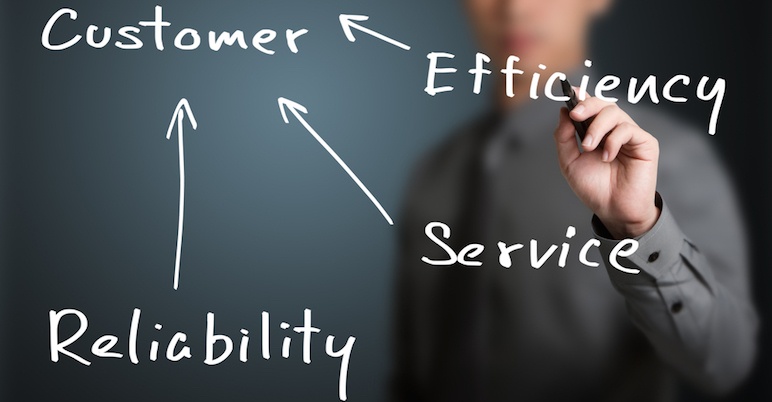How Investing in Energy Efficiency Helps Your Puget Sound Business
Investing in energy efficiency is more than just a short-term cost-control strategy. It can actually have long-term effects on business success.
The commercial sector is expected to lead the way as new conservation initiatives are launched, and for good reason: statistics confirm that commercial facilities are responsible for a sizeable portion of the overall energy usage in the United States, so commercial building owners and facility managers are necessarily at the forefront of conservation efforts.

Beyond less tangible factors involved with the energy debate, business leaders need to be concerned with the impact of regulations and conservation processes on their bottom line, since they still need to maintain profitability and protect stakeholders. While environmental sustainability is important, they also have an obligation to investors, employees, and customers, so economic sustainability is also vital.
It’s encouraging to note that conserving energy and growing a business don’t have to be conflicting goals. As explained below, there’s actually a strong business case for investing in energy conservation, making it a smart decision for companies looking to do both.
Energy efficiency stats
Before discussing strategies and tactics, let’s take a look at the statistics regarding energy conservation in commercial buildings. (The following statistics focus primarily on commercial HVAC system energy usage, but the trends bear out in other commercial areas as well.)
According to statistics published by Pacific Gas and Electric, a utility company in California, and additional cited sources:
- 15% of electricity costs in the average commercial building power air conditioning.
- Up to 51% of a commercial facility’s overall utility usage goes to the HVAC system.
- Over 30% of the energy consumed by commercial HVAC systems is lost to waste due to inefficiency and other factors.
- Simply changing filters throughout a typical commercial building can reduce this energy waste by 5-10%.
- Using programmable thermostats can save hundreds of dollars a year in a large facility.
- Routine maintenance can reduce commercial HVAC operating costs by up to 40%, in part by improving overall energy efficiency.
- For systems over 10 years old, upgrading or replacing HVAC equipment can yield 5-20% gains in energy efficiency.
Learn More About Energy Efficiency For Your Puget Sound Facility.
Simple arithmetic should provide you with a reasonable estimate of how much money your business can potentially save by improving the energy efficiency of your building’s HVAC system. If you’ve never considered it before, the figures can be stunning.
The value of investing in energy efficiency rises if your equipment is old, inefficient, and poorly maintained. If you’re not regularly cleaning and maintaining system components, proactively making strategic upgrades, or adjusting controls based on data analysis — a common scenario among commercial building owners in the Seattle area — you’re leaving a lot of money on the table.
How energy conservation impacts profitability
Every facility has is unique. However, in over 70 years serving Seattle and Puget Sound, we’ve found that essentially every commercial facility can find quantifiable value by implementing energy efficiency options. Potential savings of tens of thousands of dollars every year is not uncommon, meaning most recommended upgrades pay for themselves in just a few years. Even quick, simple, low-cost improvements can generate significant savings in buildings with inefficient systems.
Keeping your commercial HVAC equipment running its best through planned maintenance extends its expected life and maintains a high energy efficiency rating, which further increases the value of the investment.
How energy conservation impacts public perception
Investing in energy-efficient HVAC systems can also provides less tangible (but still valuable) benefits when it comes to public perception, customer loyalty, customer satisfaction, employee satisfaction, and employee productivity.
Employees working in a facility with smooth-running, energy efficient heating and cooling are more comfortable, and therefore more productive and happier. Customers, business partners, and vendors are all human beings who are connected to the larger issue of environmental responsibility and sustainability.
So, both in direct financial savings and indirect value, there’s a powerful business case for investing in energy efficiency.
Contact us today to arrange an operational assessment of your facility’s current energy efficiency and discuss options for improving your systems. Also, explore how Seattle’s benchmarking program can impact your facility’s energy efficiency, even if you’re not required to comply.

